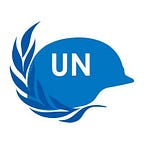Strengthening the Rule of Law and Protection of Civilians in the Democratic Republic of the Congo
By Leila Zerrougui
Recent peacekeeping missions have proved that supporting the fight against impunity and strengthening the justice sector are effective in engaging politically with stakeholders, not only in post-conflict settings, but also during conflicts. This lays the foundation of a more sustainable peace even before it is achieved.
This experience has been particularly profound in the Democratic Republic of the Congo (DRC) over the course of the past decade.
In 2008, armed group activity in the eastern DRC began to pick up again. The commission of serious crimes against the civilian population became an increasing concern. In 2009, a large-scale integration of armed group elements into the Forces Armées de la République Démocratique du Congo (FARDC) took place without adequate vetting.
To help protect civilians, the United Nations Organisation Mission in the Democratic Republic of the Congo (MONUC) and then the United Nations Organization Mission in the Democratic Republic of Congo (MONUSCO) have been mandated to support FARDC operations against armed groups since 2008. The United Nations work in conjunction with the national armed forces to fend off dangerous armed groups. The Congolese armed forces then need to respect international humanitarian, human rights and refugee law while conducting their operations.
A conditionality policy was developed that made sure that elements of the FARDC who committed human rights violations in the conduct of their operations, or where such violations took place due to indiscipline, would not be eligible for support. The Mission was also mandated to provide assistance to the justice sector to fight impunity. Congolese forces and armed groups would then be held accountable for abuses committed.
A comprehensive approach, which was adopted by the Mission, focused on three key areas: fighting impunity, establishing functioning justice institutions and prisons in areas affected by armed conflict, and launching judicial reform.
Prosecution Support Cells were designed to advise on case prioritization, investigation planning, prosecutorial strategies and compliance with international jurisprudence practices.
Mobile courts were also introduced and were essential as they allowed for the hearing of cases in remote areas, which otherwise would not have had access to the justice system. This would allow victims and witnesses to participate in proceedings and to testify, reinforcing a victim-centred approach towards justice.
Military justice authorities are often understaffed and lack resources. They struggle to effectively investigate all cases and prosecute perpetrators. Still, progress, albeit fragile, has been made.
Delivery of justice should rely on a civilian justice system. Therefore, MONUSCO has worked alongside other actors to provide some support to the civilian criminal justice chain. With around 2,000 magistrates appointed in 2013, MONUSCO has enhanced 57 court and prosecution facilities in the eastern DRC and provided training on court management and record-keeping to over 1,000 judicial staff.
In support of the government’s efforts to decongest prisons and make them safer, MONUSCO organized training for 1,546 prison personnel, including 375 women.
Recently, MONUSCO has oriented its support towards prison security and prison management, establishing a Joint Prison Task Force with the government. These efforts assisted in stabilizing 14 high-risk prisons. This has resulted in the foiling of several attacks on prisons in five major cities in the eastern DRC.
The United Nations has supported the DRC prosecution services in conducting regular inspections of detention facilities, resulting in thousands of illegally held detainees released. The organization supports work related to upgrading prison facilities, updating databases and archives, and improving prison security procedures and personnel capacities.
The system still needs to be improved through structural reforms of the justice system, investments in infrastructure, securing regular financing, and strengthening the administration.
Nevertheless, our work demonstrates that justice has been better served for the people of the DRC. Grievances can now be addressed, and reconciliation achieved, and the State can maintain stability and dispense justice for all–even in an ongoing conflict setting.
The message that everyone is accountable for their actions, and that none are above the law, is a powerful one that can help move a society from conflict towards sustainable peace.
The author is the Special Representative of the Secretary-General and Head of the United Nations Stabilization Mission in the Democratic Republic of the Congo (MONUSCO).
A previously published full-length version of this article appears on UN Chronicle.
This article was edited by UN Online Volunteer Erika Morris.
